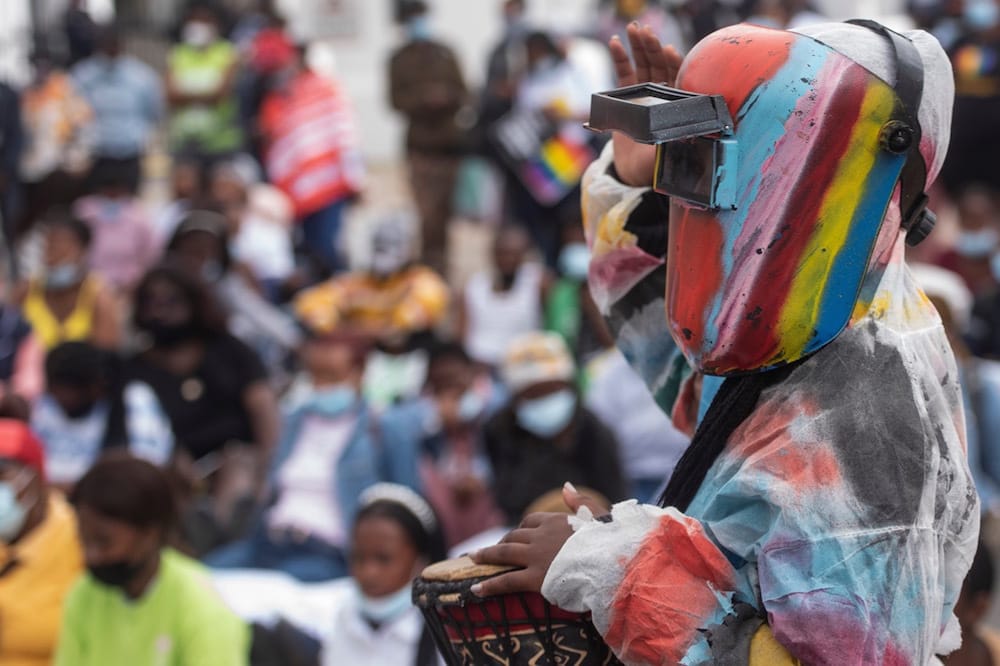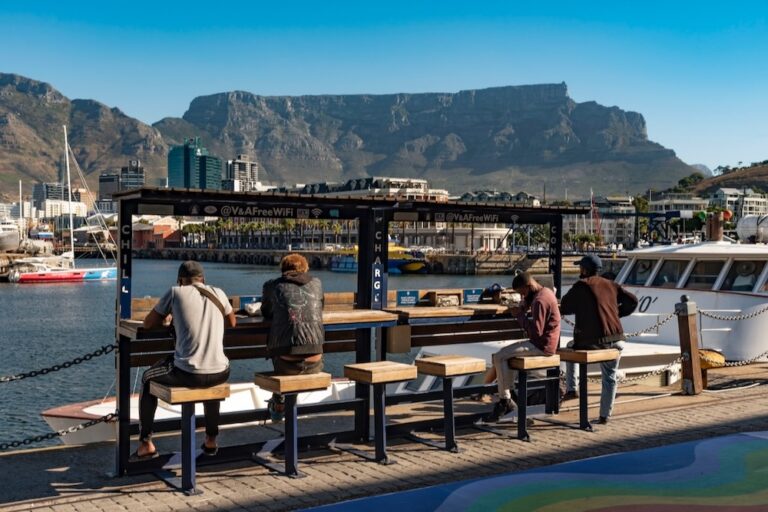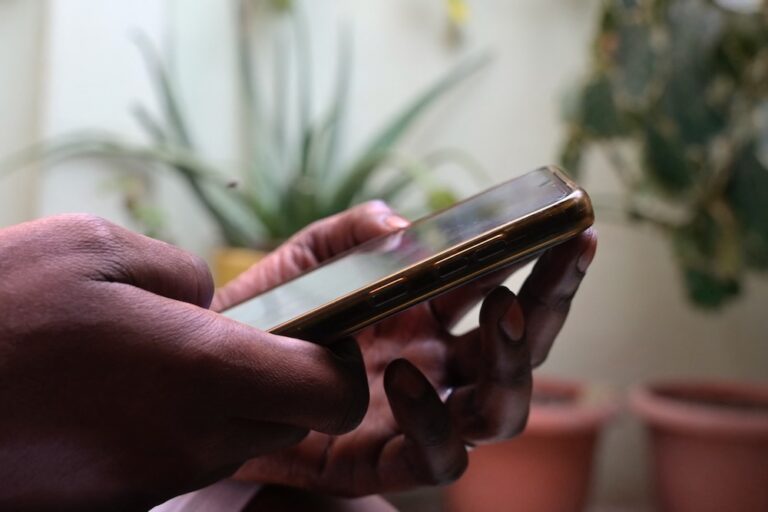April 2021 in Africa: A free expression roundup produced by IFEX’s regional editor Reyhana Masters, based on IFEX member reports and news from the region. You can also check out our special edition of our podcast Africa Brief marking World Press Freedom Day here.
World Press Freedom Day in Namibia was an important time to reflect on the safety of journalists in Africa. April was another brutal month, with the death of three journalists in two separate incidents, increasing persecution of journalists in Somalia, and numerous grave threats against media personnel and outlets across the continent.
World Press Freedom Day returned to its birthplace – Windhoek, Namibia – against a backdrop of a more technologically diverse media landscape than that of 30 years ago. Sadly, freedom of expression and media freedom violations continue unabated.
At the heart of these incidents is a distinct disinterest by authorities in investigating the violations. This, in turn, continues to fuel the thriving culture of impunity as governments, opposition, private sector, and citizens become emboldened in their threats and attacks on the media.
The growing stack of freedom of expression and media freedom violations made the return of WPFD and the Windhoek Declaration to Namibia an important time to reflect critically and thoughtfully on safety and justice issues. So alongside this year’s theme of Information as a Public Good, the event remembered “those journalists who lost their lives in the pursuit of a story.”
Reporters Without Borders (RSF) World Press Freedom rankings analysis on trends in sub-Saharan Africa says that “journalism is still dangerous in Africa, especially when journalists cover elections or social unrest.”
The Media Institute of Southern Africa (MISA) State of Press Freedom in Southern Africa report, launched just days before WPFD, outlines how constitutional guarantees on freedom of expression, media freedom, and access to information are being hindered, and how these “have been further punctuated by physical and verbal attacks, harassment and assault of journalists and in some cases the raiding of media houses.”
This speaks directly to the brutal month the media experienced on the continent, with the death of three journalists in two separate incidents, increasing persecution of journalists, and numerous grave threats against media personnel and outlets across the continent.
On 7 April, Mutekhele Barasa, a senior video editor and television producer working for the Kenya Broadcasting Corporation, was shot and killed when she seemingly interrupted a robbery at her home. “According to her family, three men had been waiting for her to arrive from work and two of them were armed with AK-47 rifles,” reported the International Federation of Journalists (IFJ).
In conveying their concern and condemnation, the African Freedom of Expression Exchange (AFEX) network requested Kenyan authorities undertake a meticulous investigation into what it says are “suspicious circumstances” surrounding her death. “Kenya’s failure to do so will amount to condoning impunity for crimes against journalists, embolden other potential killers of journalists, and undermine the state of press freedom in the country,” reads the AFEX statement. The call for an “urgent and independent investigation of the killing to ensure that both the gunmen and the master minders of this crime are brought to justice,” was reiterated by IFJ in solidarity with the Kenyan Union of Journalists.
Just days before WPFD, media platforms were awash with outpourings of grief after news of the kidnapping and killing of Spanish journalists David Beriain and Roberto Fraile, in Burkina Faso, hit the headlines.
Beriain and Fraile were killed along with Irish wildlife activist Rory Young, while covering operations of an anti-poaching unit in Burkina Faso’s national park, close to the Sahel zone border – an area prone to attacks by various militant groups.
A Variety tribute to Beriain called him a “noble and stubborn man from Navarre who achieved incredible things,” while photographer Alberto Prieto described his friend Fraile “as an excellent professional and a good friend.”
While media coverage focused primarily on the deaths, two soldiers who were injured during the attack and spoke to Associated Press on condition of anonymity said: “when the jihadists attacked, the soldiers tried to form a protective shield around the foreigners, but once the shooting stopped they realized they had disappeared.”
In the horn of Africa, Somalia seems reluctant to shake off its reputation as a media-hostile nation. Based on reports by the Somali Journalists Syndicate, the Committee to Protect Journalists (CPJ) has documented media harassment ranging from detentions to raids of media outlets in recent months.
As CPJ reports, in just one week “security forces in Somalia detained Ali Nour Ayn, a contributor to Facebook news page Mudug Journalist and YouTube news channel Galka TV; shot at and briefly detained Bashir Ali Shire, the deputy director of the private Radio Hubal; and raided the privately-owned radio broadcaster and online news outlet Mustaqbal Media.” During the raid, carried out by a Turkish trained Somali special security unit, officers confiscated equipment and hit shift editor Bashir Mohamud Yusuf with a gun.
Clients of Guinea Bissau human rights lawyer Luiz Vaz Martins include blogger Antonio Aly Silva and radio journalist Adão Ramalho, both of whom were brutally assaulted in relation to their work in March of this year. Their attackers are not known. Martins has expressed his concern at the deteriorating press freedom environment in his country.
A report by Amnesty International says the government narrative has “often invoked alleged national security concerns and the fight against Al-Shabaab as a basis to restrict the right to freedom of expression and access to information.”
In South Africa, SABC radio news journalist Phanuel Shuma turned to the police to secure his safety after brothers Manqoba and Lucky Khoza – murder suspects out on bail – visited him at work. Considering it a warning, Shuma laid charges of intimidation with the police. According to the South African Editors Forum: “the investigating officer on the initial murder case that led to the arrest of the Khoza brothers and their sibling in July 2018, is in witness protection.”
Security forces in the Democratic Republic of Congo’s Ituri province repeatedly threatened Joel Musavuli Mumbere and Parfait Katoto for airing a report during which a human rights activist implicated military officials of overseeing the torture of civilians. The journalists, from Radio Télé Communautaire Babombi (RTCB) and the community broadcaster Radio Communautaire Amkeni Biakato (RCAB) respectively, said they felt vulnerable.
In Nigeria, Jaafar Jaafar, publisher of the Daily Nigerian, was forced to file a police report after Kano State governor Alhaji Ibrahim Ganduje spoke during an interview of ongoing plans to “deal with” journalists who produced a 2018 series of videos published by the privately owned Daily Nigerian news website, which alleged that he had received bribes.
Media Rights Agenda (MRA) said the federal government must investigate the alleged threat to Jaafar’s life, and was obliged to protect members of the media, particularly when their lives, safety, or security are threatened by government officials.
Watipaso Mzungu, a senior reporter at Nyasa Times, was interrogated by Malawi police over an article in which he quoted human rights activist Sylvester Namiwa calling Malawi’s president a ‘joker’. During the interrogation he was denied access to his lawyer and compelled to give police his original version of the article. When questioned about Mzungu’s detention, Malawi police spokesperson James Kadadzera said that he was not brought in for interrogation, but rather invited for an interview about Namiwa’s statement.
Back to Kenya, where George Kinoti, the director of the country’s Police National Directorate of Criminal Investigation, went on air to berate reporter Purity Mwambia and Citizen TV for the production and airing of their year-long investigative report, Guns Galore. The exposé, which looks at police allegedly hiring out firearms and uniforms to criminals, was described by Kinoti as “false but injurious to the stability of the country” and a “deliberate, malicious attempt” to humiliate police and to create “public pandemonium.”
The Media Commission of Kenya and the Kenya Editors’ Guild urged the official to report his concerns to the Media Complaints Commission.
Towards the end of April in Angola, Chela Press editor Francisco Rasgado was arrested at his home – in full view of his family – by heavily armed police officers, and detained for allegedly missing a court date for his criminal defamation and insult trial. Rasgado’s lawyer is adamant that he was not aware of the court appearance. He faces a US$1.5 million lawsuit and at least six months in jail, if found guilty.
Earlier in the month, Manuel Jorge, who works for the opposition-run radio station Radio Despertar, was arrested and illegally detained for five days. He had been covering a protest in Luanda when he was picked up by police who cast aside his journalist credentials and disregarded calls from Radio Despertar confirming he was on duty. Following his release, he is required to report to the police every 15 days.
An attempt to improve the relationship between Uganda’s security forces and the media faltered after three journalists were attacked, in two separate incidents. Specifically targeted for his reports, Enoch Matovu, who was on his way home from the clinic with his daughter, was severely beaten and allegedly “injected with an unknown substance.”
Reporters Amon Kayanja and Teddy Nakaliga, who were covering an electricity outage protest in Kayunga, were whipped by soldiers. Brigadier General Flavia Byekwaso, the army spokesperson, apologised for the incident and gave his assurance errant soldiers would be held to account.
Nigerian freelance journalist Frederick Olatunde Odimayo, of the private broadcaster Grace FM, was beaten unconscious by men accusing him of ruining their drug trafficking after his exposé on the illicit trade in Kogi state. “Odimayo told CPJ that Grace FM had filed a report to police immediately following the attack.”
Gambian journalist Yankuba Jallow was harassed by jail wardens outside the High court in Banjul for taking photos of incarcerated former intelligence officials. Jallow resisted attempts by the wardens to take his phone, adamant that he had not broken the law by taking photographs outside the court. In similar fashion, Zimbabwean journalist Samuel Takawira was also tackled by the police outside Magistrate’s Court in Harare. He had been covering a press conference held outside the court after youth activist and government critic Makomborero Haruzivishe was sentenced.
LGBTQI+ community in South Africa under attack
South Africa’s constitution, adopted on 8 May 1996, was the first in the world to constitutionally prohibit discrimination based on sexual orientation. Sadly, the reality on the ground does not live up to the country’s progressive guarantee of equality for gay and lesbian people. Those brave enough to be candid in declaring their sexual orientation face frightening levels of violence, ranging from verbal insults and threats to assaults, rape, and murder.
On 31 March 2021, a Durban High Court sentenced Mvuyisi Noguda to 25 years in prison for the February 2020 murder of LGBTQI+ activist Lindokuhle Cele. The judgment was welcomed by the family and friends of as sending a clear statement to those attacking members of the LGBTQI+ community. Sadly, attacks continue.
Lonwabo Jack’s 22nd birthday on 17 April ended in tragedy when he was stabbed to death in Nyanga, Cape Town. He became the sixth LGBTQI+ person to be killed in South Africa between February and April of this year. A 17 year-old boy has since been arrested in connection with the hate crime.
Days before Jack’s killing, LGBTQI+ activists protested at the provincial parliament in Cape Town, demanding justice for the murder of Andile Ntuthela. Protestors demanded more protection from police and government. The gathered activists pressed for the passing of the Prevention and Combating Hate Crimes and Hate Speech Bill B9 of 2018.
Concerned with the spate of killings, the chairperson of South Africa’s Commission on Gender Equality Tamara Mathebula condemned the hate crimes and called for the inclusion of LGBTQI+ people in society.
Digital rights
Zambia’s recently passed Cyber Security and Cyber Crimes Act aimed at tackling digital crime is being regarded as a tool to be used to muzzle media freedom, freedom of expression, and the right to privacy, ahead of scheduled elections in August.
Five organisations – Chapter One Foundation, Bloggers of Zambia, Gears Initiative, People’s Action for Accountability and Good Governance in Zambia, and the Alliance for Community Action – believe the controversial Act violates the Constitution and are taking the matter to the courts.
The Ugandan government is considering dropping the Over The Top (OTT) charges for consumers and introducing a 12 percent levy on internet bundles instead. It had not generated the anticipated income, as many users are choosing to use Virtual Private Networks (VPNs) and Wi-Fi.
In unpacking proposed amendments to the Mauritius ICT Act, Christina Meetoo, a senior lecturer at the University of Mauritius, says the changes put the country at risk of becoming a surveillance state with potential abuse and misuse of the technical toolset against its own citizens, rather than protecting them. Meetoo believes it is a positive sign that the amendments are at the public consultations stage, and considers it important that concerned citizens send in their inputs.
And now for some good news . . .
The Media Foundation for West Africa is setting up an independent investigative journalism project – The Fourth Estate – which will focus on reporting that promotes transparency, accountability, and anti-corruption in West Africa. The Fourth Estate will be headed by leading Ghanaian journalist Manesseh Azure.
The Kenya ICT Action Network has developed a comic strip that can be used as a training tool for focusing on online gender based violence. Titled A Safer Web for Women, the animated tool shows what violence can look like online, how the seemingly harmless can actually contribute to it, and what can be done to prevent it.
If you enjoyed reading this piece, check out our special edition of Africa Brief marking World Press Freedom Day. 30 years after the signing of the landmark Windhoek Declaration, IFEX’s Reyhana Masters & David Christopher interview special guests Tabani Moyo (MISA Zimbabwe) & Zoe Titus (Namibia Media Trust) on the past, present, and future challenges facing freedom of expression in #Africa:



